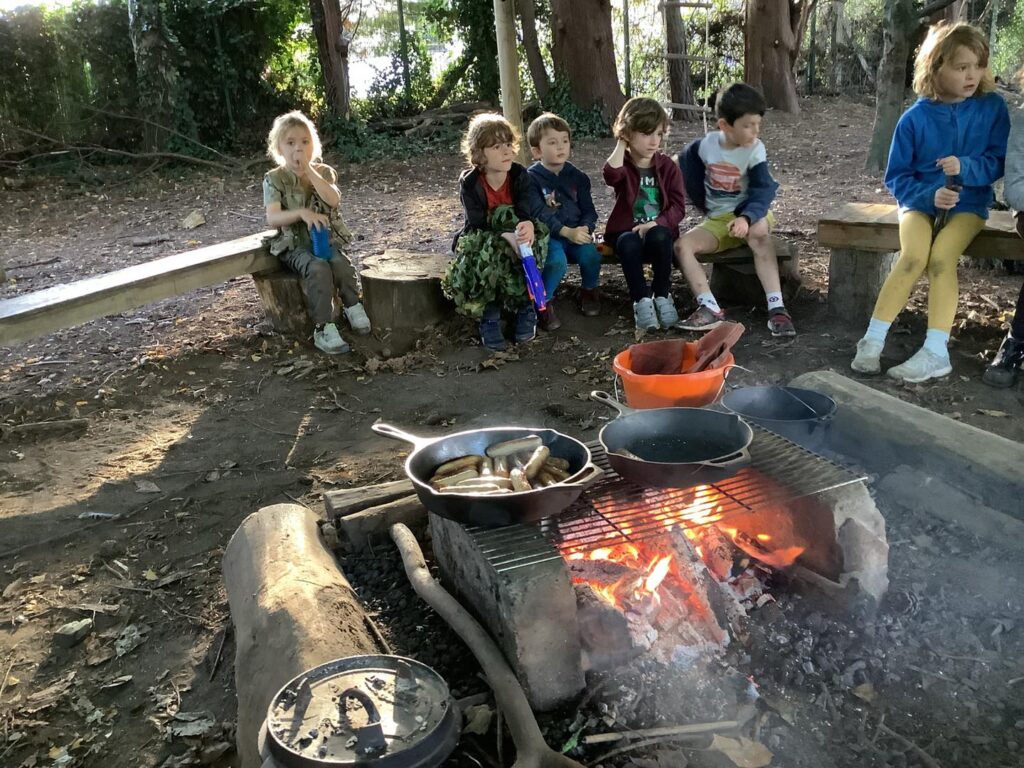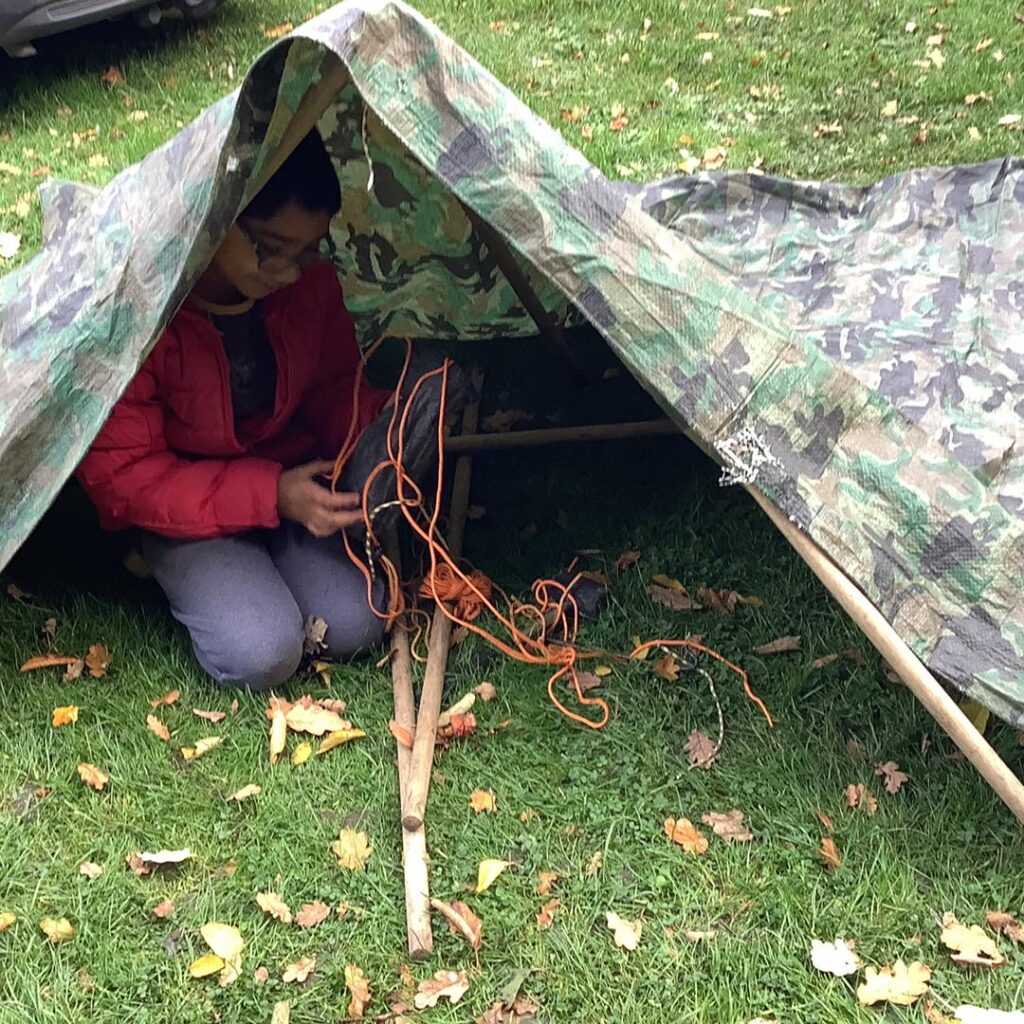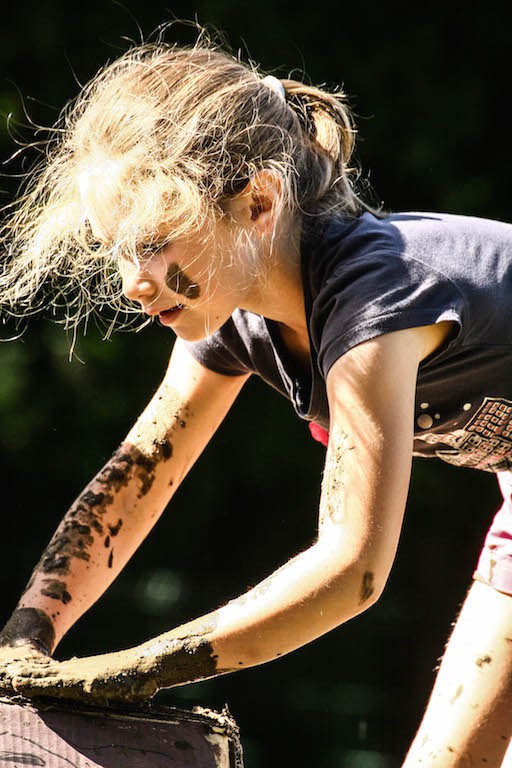How does Forest School Promote Self-Esteem and Emotional Intelligence?

At Smartkidz, we use parts of the Forest School approach to inform our practice, especially when it comes to our outside spaces. While not woodland or entirely natural, we strive to provide areas where children can connect with the outdoors and benefit from many of the same outcomes as a more typical Forest School environment.
For our children, Forest School is not just an enjoyable way to pass the time; it provides many benefits. One of the most noticeable things we’ve observed is its impact upon children’s self-esteem and emotional intelligence.
What is Forest School?
Forest School is a specialised learning approach that sits within and compliments the broader context of outdoor and woodland education.
The Forest School Association defines forest School as:
An inspirational process that offers children, young people and adults regular opportunities to achieve and develop confidence and self-esteem through hands-on learning experiences in a woodland environment.
At Forest School, all participants are viewed as:
- Equal, unique and valuable
- Competent to explore & discover
- Entitled to experience appropriate risk and challenge
- Entitled to choose and to initiate and drive their own learning and development
- Entitled to experience regular success
- Entitled to develop positive relationships with themselves and other people
- Entitled to develop a strong, positive relationship with their natural world.
You can read more about Forest School here.

What is Self-esteem?
Self-esteem is how we see ourselves and how we value our abilities. Someone who has good self-esteem generally has a good sense of their abilities and the value these abilities hold. They show a level of respect for themselves and have confidence and pride in who they are and what they are capable of. People with low self-esteem often have a low opinion of themselves or believe that they are no good or incapable. People with low self-esteem can be very critical of themselves and hold themselves in low regard. They are also less likely to feel confident taking on life’s challenges.
The level of self-esteem we develop as a child, high or low, often sticks around into adulthood.
How Does Forest School Promote Self-esteem?
Forest School provides children with the opportunity to grow and learn in a non-classroom environment. Those who do not excel in the classroom can often find something they are good at through exploratory play. Those for whom classroom learning may come more easily can be challenged and their resilience strengthened.
Unlike in the classroom, Forest School activities are more likely to allow the children to direct and control their own activities or play. When in control, children can develop a stronger sense of self and take the opportunity to challenge themselves at their own pace and in their own way. Not only does this give them an understanding of their boundaries, it often allows them to realise that they are capable of more than they thought or were able to figure out a way to do something or overcome an obstacle.

What is Emotional Intelligence?
Emotional intelligence is the capacity to be aware of your emotions and recognise the feelings of others. This recognition and understanding can then be used to form connections with others.
The mixed model of emotional intelligence developed by Daniel Goleman identifies 5 main areas of emotional intelligence:
- Self-awareness – The ability to recognise one’s own emotions, strengths, weaknesses, goals, motivations and values as well as being able to recognise the impact these may have on others.
- Self-regulation – The ability to recognise one’s own negative emotions and impulses, being able to control or redirect them to produce a more positive purpose of feeling. This includes the ability to adapt to changing circumstances.
- Social skills – The ability to utilise self-awareness and self-regulation to manage relationships with other people.
- Empathy – The ability to personally identify with the challenges faced by others and being able to consider the feelings of others in one’s own decision-making.
- Motivation – The ability to motivate oneself, not only to achieve results but purely to have succeeded at something.
How Forest School Promotes Emotional Intelligence
Self-awareness – Forest School naturally supports children to become more aware of their physical selves. It also allows children to safely explore and test their own boundaries. They can face fears, develop skills, test ideas and make discoveries.
Self-regulation – Forest School allows children to experience the emotions that go with challenging oneself, taking risks, achieving something and perhaps even failing at something. By providing a safe environment in which to experience these emotions, children can better learn how to manage them successfully.
Social skills – A natural place to promote working together, sharing tools and playing together, Forest School operates outside of the constraints or rules of the classroom. Children can collaborate and collectively achieve by building a den, making up a game or helping each other to climb a tree.
Empathy – Empathy can easily be encouraged in a Forest School environment. Working together as a team will mean supporting each other and developing an understanding that some things may be more challenging for some members of the team than others.
Motivation – Forest Schools offers a fascinating environment for children to play and learn in. Curiosity and keenness to explore often trigger an eagerness to participate, freedom from “being wrong” and willingness to have a go. Activities that are self-led allow children to take ownership and lead their own learning.

Conclusion
Developing self-esteem and emotional intelligence is important for children as they form vital building blocks for life. The philosophy of Forest School actively supports children to develop good self-esteem and emotional intelligence.
At Smartkidz, those same principles are at the heart of what we do. We support children to challenge themselves and find out more about themselves and their abilities. We allow children to take risks in a supported environment to test their boundaries and discover what they are capable of. We facilitate children working together to overcome challenges, create ideas and invent new things.
